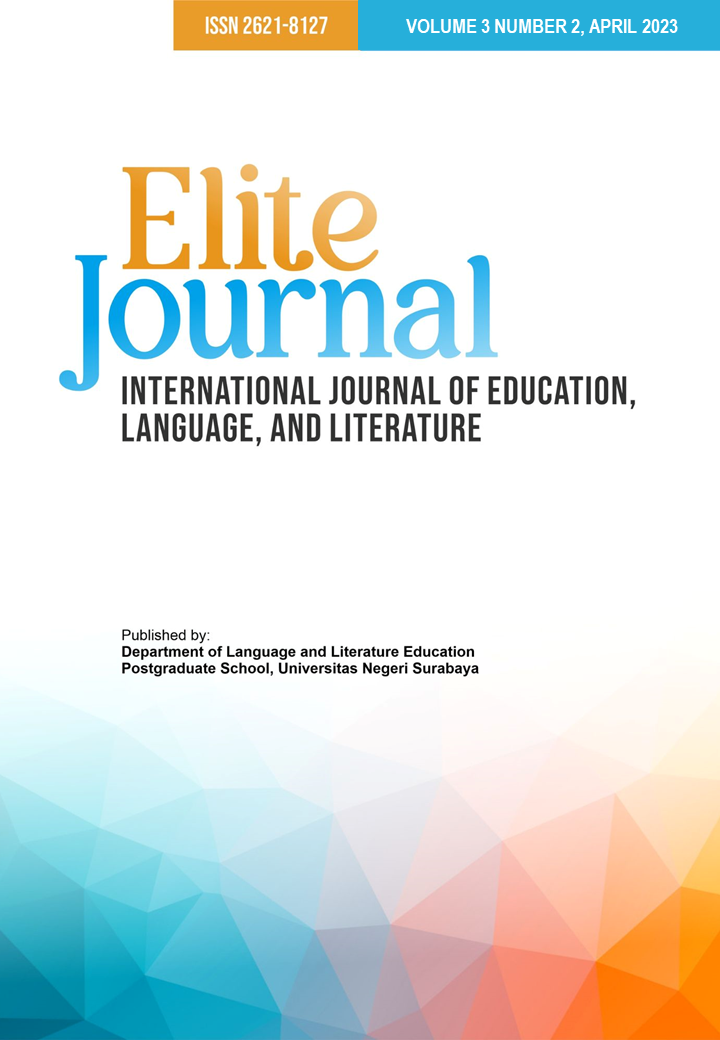THE REPRESENTATION OF LIBERAL FEMINISM THROUGH CARLY WHITTEN'S CHARACTERIZATION ON THE OTHER WOMAN (2014)
DOI:
https://doi.org/10.26740/elitejournal.v3n2.p88-95Keywords:
feminism, liberal feminism, personal autonomy, characterizationAbstract
The Other Women’s Charlie Whitten is a dynamic and round character. It could be argued that her characterizations, attitudes, and behavior represent the value of liberal feminism. It depicts some issues regarding gender issues, where women are seen and treated lowly by a man. Moreover, Liberal feminism is a branch of feminism that advocates eliminating gender inequality through having equal rights for both genders. It focuses on women’s ability to show and maintain their equality and maintain their equality through their actions and choices. This film is about Carly as a successful career woman who is cheated by a man named Mark. After she meets with Kate, Mark’s wife, and Amber, Mark’s other mistress, they plan revenge for Mark. Furthermore, the characterization of Carly depicts liberal feminism’s personal autonomy proposed by Emily Baehr (2007). This study will use a qualitative method to reveal the representation of liberal feminism of Carly Whitten. Moreover, the analysis of characterizations and find out that Carly has smart, hard-working, independent, supportive, and determined characteristics. Therefore, those characteristics will be used to analyze the idea of personal autonomy presented by Carly Whitten.
References
Baehr, A. R. (2013). Liberal Feminism: Comprehensive and Political. Pennsylvania: Penn State Press.
Baehr, A. R. (2020). Liberal Feminism (Stanford Encyclopedia of Philosophy). Stanford: Stanford.edu.
Hastuti, D. P., Gunawan, D., & Andriani, R. (2018). Liberal Feminism In Movie North Country Directed By Niki Caro. Wanastra: Jurnal Bahasa dan Sastra, 10(2), 91-104.
Murphy, J. M. (2021). Understanding Unseens. Retrieved from https://www.merriam-webster.com/.
Nahdiyati, A. (2012). An Analysis on Liberal Feminism Values of the Main Character in the Film Miss Potter. Jakarta: Uinjkt.ac.id.
Nareswari, L. K. R. (2019). Liberal Feminism Seen through the Main Female Character in Educating Rita Movie. Retrieved from https://doi.org/http://repository.usd.ac.id/34696/1/144214070.pdf.
Tong, R. (2009). Feminist Thought. Colorado: Westview Press.
Wijayati, A. T. (2020). The Character of Moana in the Disney Movie Script Moana Seen from Liberal Feminism. Retrieved from https://doi.org/http://repository.usd.ac.id/36761/1/154214023.pdf
Downloads
Published
How to Cite
Issue
Section
License
Copyright (c) 2023 Sharon Tambotto

This work is licensed under a Creative Commons Attribution 4.0 International License.
 Abstract views: 563
,
Abstract views: 563
, PDF Downloads: 764
PDF Downloads: 764





